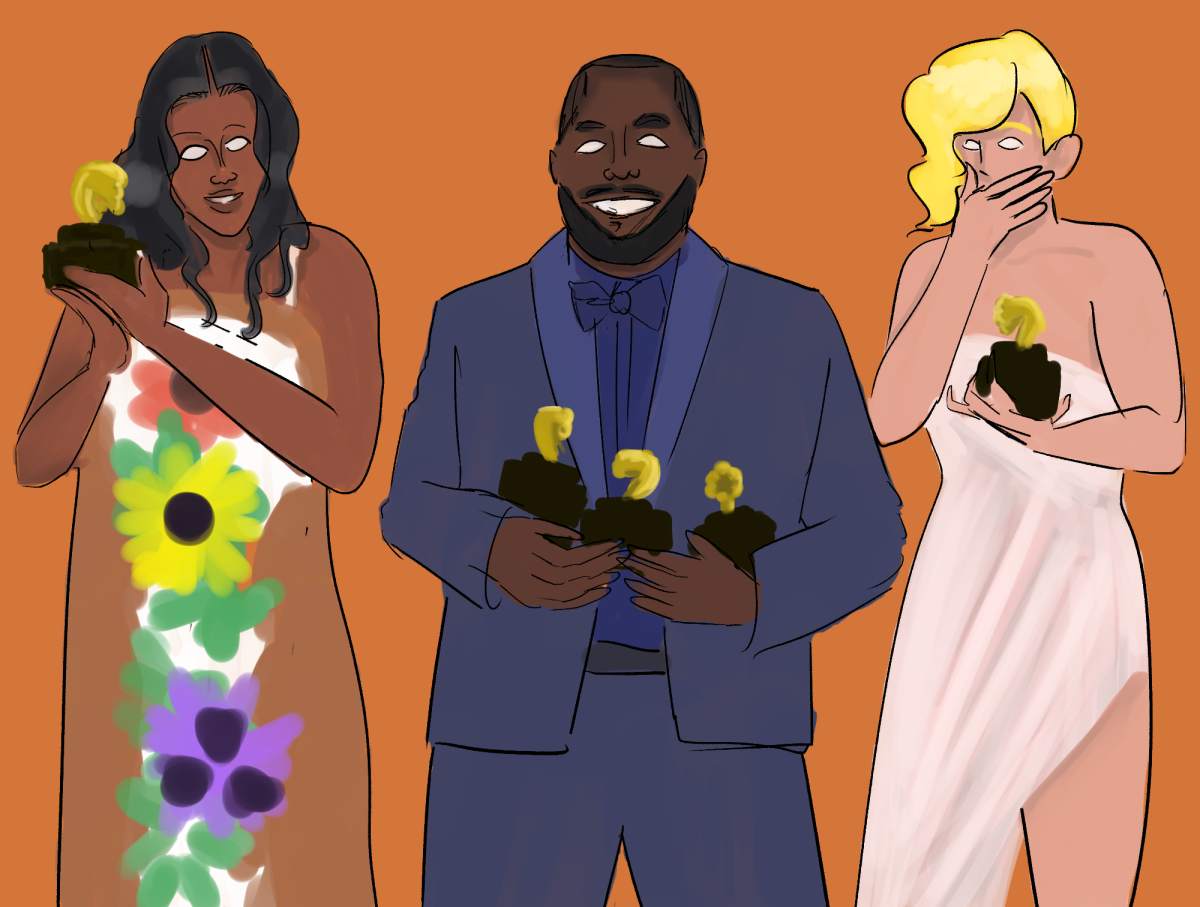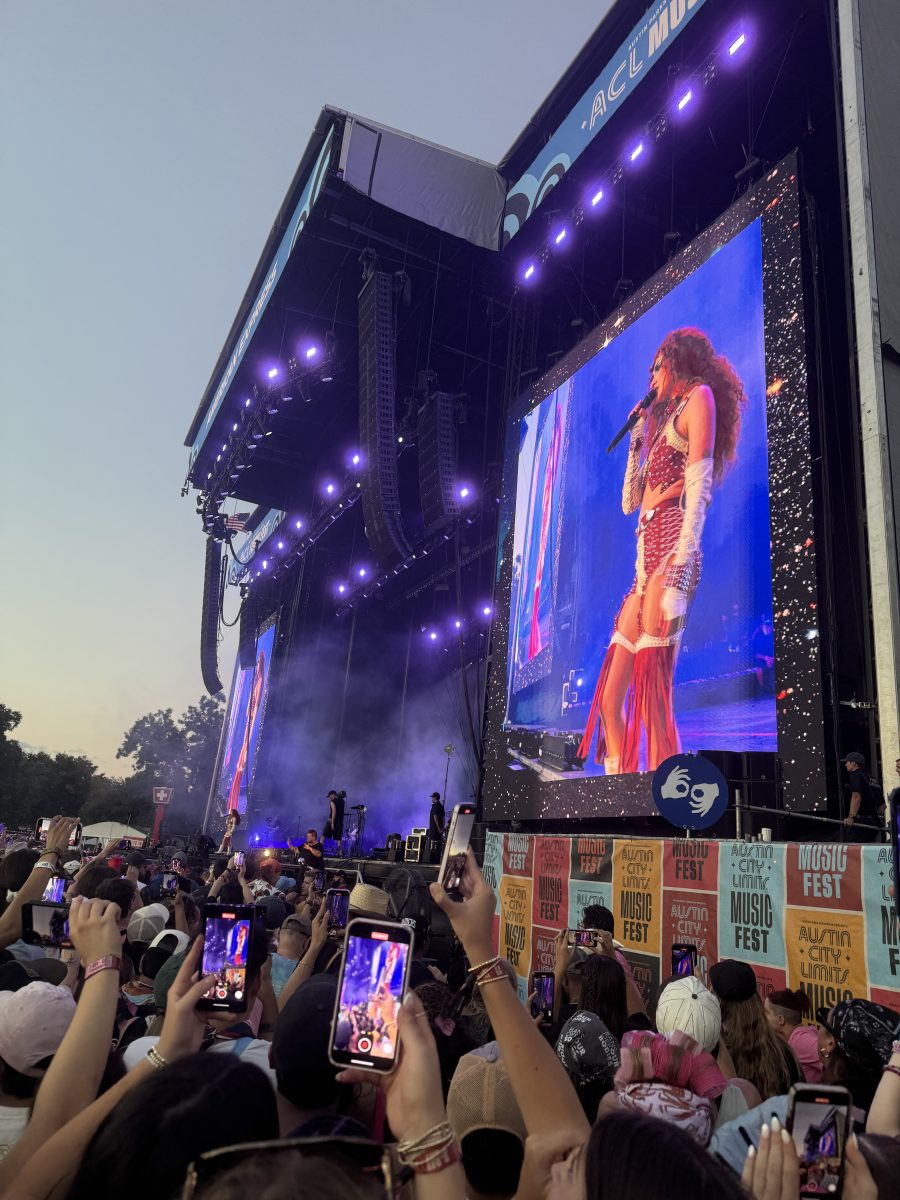My favorite part of the Grammys on Sunday, Feb. 4 was not what I first expected. I followed the wins live, eagerly anticipating artist appearances and well-deserved awards. Taylor Swift and SZA and boygenius all got their flowers, and I was so delighted to see the Recording Academy affirm what I already knew about their music. I was not, however, planning on the complicated emotions I felt when I watched Joni Mitchell perform “Both Sides Now” and the experience of realizing why it made the annual awards show so special this time. This feeling was deepened by Tracy Chapman’s duet performance of “Fast Car” and watching the private artist sing proudly in the public eye.
During both performances, there is a moment where you witness the audience react to seeing their faces, the bright warm light illuminating their presence on the stage. When Joni Mitchell’s large, ornate white chair turns her to face the audience, the song’s enduring themes of love and loss are reimagined in the voice of an older perspective. Mitchell’s performance marks her first at the Grammys, and her win for best folk album, “Joni Mitchell at Newport (Live),” commemorates her first live public performance in 20 years, at the Newport Folk Festival in 2022.
Just nine years ago, the singer-songwriter had an aneurysm that left her temporarily unable to speak. However, at 80 years old, the iconic voice of a generation returned to sing a song she wrote in 1966, when she was just 21, tapping out the rhythm with her cane.
Tracy Chapman’s performance shares a similar sentimentality exuded by Mitchell’s. Chapman made very few public appearances after her most recent tour ended in 2009. Her narrative song “Fast Car” experienced a renaissance this year, due in part to the hit cover by Luke Combs. Thirty-five years after its release, the 59-year-old singer joined him on the Grammy stage and was faithfully given the respect and admiration she deserved in the surprise performance’s welcome reception.
The experience of watching Mitchell and Chapman sing their tender lyrics reminded me of the power of provoking lyricism, as well as the beauty and inspiration I find in older women. Overwhelmed, I called my grandma to talk to her about it. We spoke about how it is rare to see the media allow female artists to continue to represent their music, or the image of their music, as they age. We commented on how it’s uncommon to see older women in music, especially being appreciated for their performances.
Making sure older women continue to be represented in music is of the utmost importance. Allowing musicians’ songs to be carried with them as they age deepens the perspective and strengthens the agency of the art. Furthermore, supporting music made by older women makes space for good art and resists the music industry’s sexism. The music industry, in accordance with many other industries in society, rewards youth, and is especially hostile towards women who do not “age gracefully,” as it is often put.
In a 2016 speech accepting Billboard Woman of the Year, Madonna expressed that “in the music industry … to age is to sin.” The entertainment industry often encourages emerging artists to lie about their age to help the media push their success. In her 2019 documentary, “Miss Americana,” Taylor Swift speaks about falling victim to the phenomenon of celebrities becoming “frozen at the age they got famous.” This pattern is so unfortunate that it can force artists into a box, often of youthfulness and public likability, that stunts artist evolution and produces a limited understanding of how creativity and meaning can develop with age.
It is one of life’s illusions that women in music are immortalized at the impressive young age they became famous, or that music made and performed by younger singers is somehow more moving or more enticing. But, as it has been proven, we do so seriously want to see and hear older women in music. It might even remind us to call our grandmothers and discuss how special the ability to age and experience the fullness and futility of life is.
Categories:
Older women in the arts should get more respect
Why the best part of the entire Grammys was Joni Mitchell and Tracy Chapman
Various artists standing with their Grammy awards, color
More to Discover








